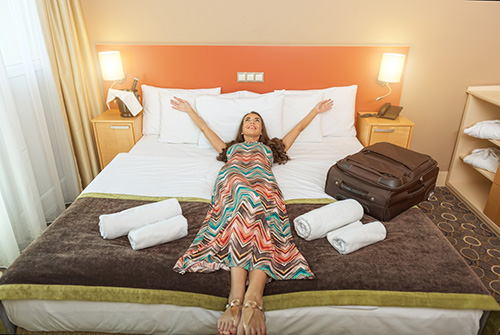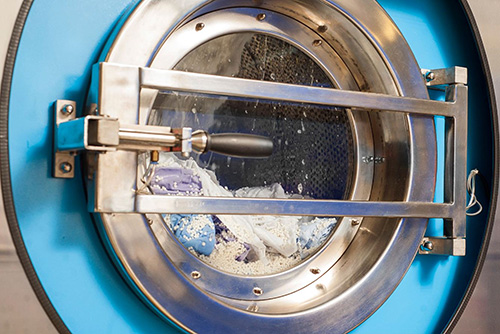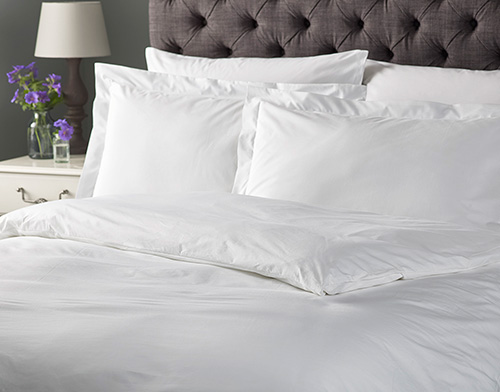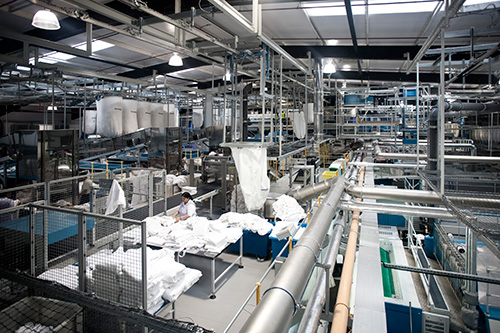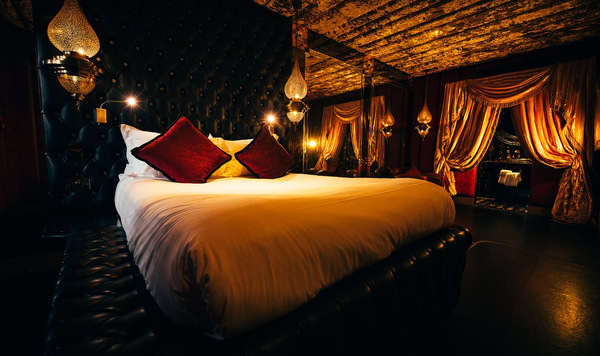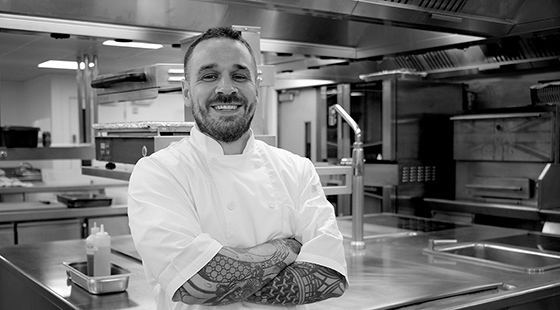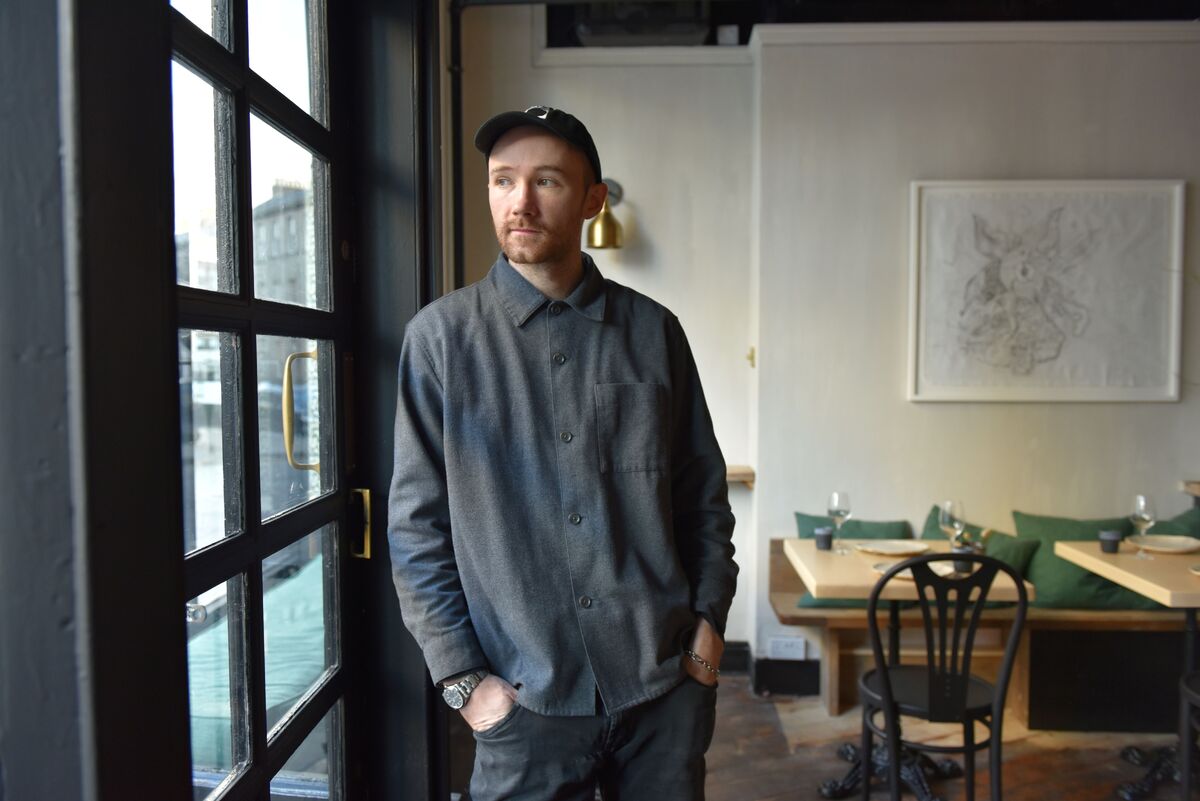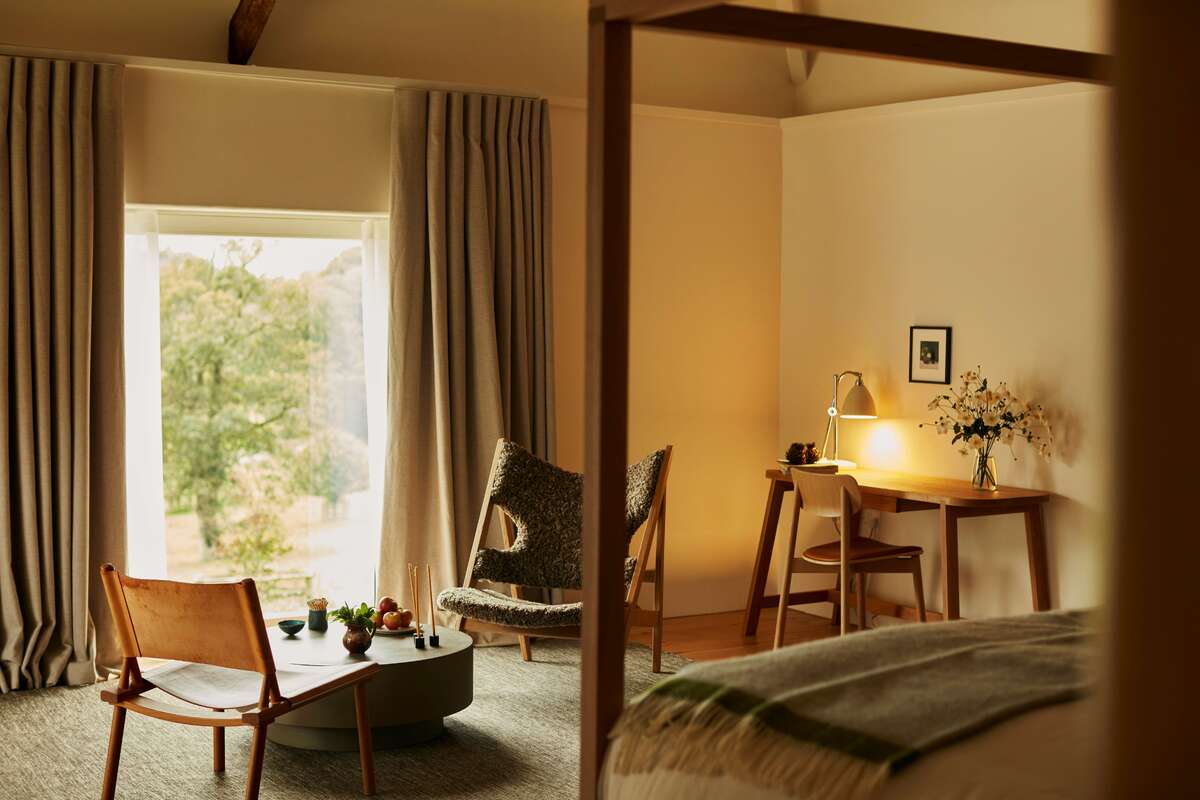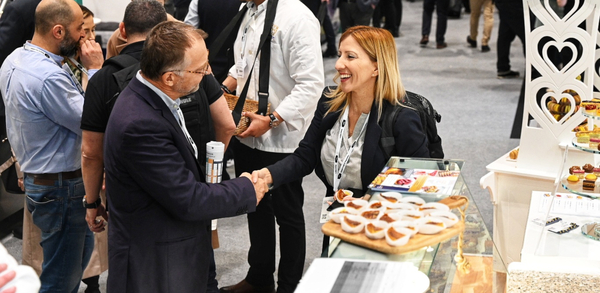Cottoning on: the secret of perfect hotel bed linen
Angela Frewin reports
Bedroom and bathroom linen provide perhaps the most intimate encounters of a guestâs hotel experience â" so cleanliness, quality and comfort are king-sized considerations for operators.
The impression linen leaves can go more than skin deep: a survey of more than 1,000 hotel guests by linen and laundry provider Berendsen UK found that almost 33% retained positive memories of hotel linen, for instance:
âCleanliness and freshness made me feel valued as a customerâ; âwe loved the room, especially the bed linen. It was so soft and invitingâ; and âalways has nice, fluffy towels and the bed linen is clean.â
Dissatisfied customers spell out the penalty of failure: âThe towels were tiny and far too thin and although they had been washed, they looked stained, so I would never stay there again!â; and âthe linen was dirty and we left and went elsewhereâ.
So it is unsurprising that Premier Inn attribute the comfort and quality of the budget chainâs beds and bedding (the 1,000-spring Hypnos beds with mattress toppers and 220-thread-count duvets) to its repeat bookings. Phil Hodgson, commercial director at linen and workwear supplier Tonrose, estimates that 80% of hospitality operators contract out their laundry (with 60% leasing their linen) â" but Berendsen found that 60% of guests believe laundry is conducted on-site and 88% blame the hotel for any failings.
Linen hire and laundry services represent a hotelâs third or fourth biggest item of expenditure, says Whitney Hall, managing director at Crystal Laundry. So balancing sumptuous sleep and bathroom bliss with cleanliness, durability and cost is a crucial equation.
âOver the last few years we have seen an increased need for easy-to-launder fabrics that are not only long-lasting and durable, but also cost-effective,â says Victoria Oracz, national sales manager at linen supplier Hilden UK.
Raj Ruia, managing director at Richard Haworth, finds the core bedroom market is migrating from cotton to cotton-rich and cotton/polyester blends, combining cottonâs comfort with polyesterâs durability and easy care. Blends range from 50:50 polycottons through to mixes of 60:40, 70:30 and 80:20.
Upmarket hotels and chains, however, are adopting 100% cotton with higher thread counts (200-300 against the standard 130) for an enhanced sleep experience, adds Hall. The new breed of 200-thread-count lines, such as Richard Haworthâs Blenheim and Hildenâs Monte Cristo range, are crafted to overcome historical problems in processing these fabrics in commercial laundries.
The 100% cotton or ring-spun cotton towels and robes remain the top choice. âTowels are an easy way to add luxury for guests,â says Hodgson at Tonrose. He says he has seen a shift towards thicker, higher grams per square metre (gsm) weights as hotels up the deluxe factor. Mayfair, Richard Haworthâs plushest towel range to date, weighs in at 650gsm of 100% combed Turkish cotton.
Pure and simple
White remains the colour of choice. It is easier for laundries to process, does not lose colour, provides an easy base for design and is, adds Ruia, what guests expect: âCrisp, white linen brightens up any bedroom and is a welcoming sight to guests at the end of a long day.â
While most hotels favour the freshness of white linen (perhaps with a satin stripe), Oracz detects growing demand for more distinctive linens with a hint of intricate patterning. Hilden is satisfying this with a range offering alternative striped, checked or jacquard designs.
Coloured linen and towels are more prevalent in boutique hotels and hotel spas, but Hall suspects the toll taken on white towelling by the rising tide of fake tans and hair dyes could trigger a wider move towards darker hues.
Softly, softly
The secret to keeping towels and robes soft and fluffy is to not over-dry them, advises Oracz. She suggests drying at reduced temperatures until the terry loops have fully opened and leaving a 4% moisture content in the fabric to avoid harshness, fraying of the hems and greying of the terry tips.
Commercial laundries are achieving energy efficiencies and environmental sustainability with new washing, pressing and finishing technologies. Replacing washer extractors with continuous batch (tunnel) washers â" linked to recycled water and heat recovery systems â" with a powerful press allows laundries to process more loads with less mechanical action and reduced drying times, says Hall.
The luxury thick towels and high threadcount linens, however, are less eco-friendly to launder and transport and limit laundriesâ ability to process sustainably and price competitively. Non-standard bed linen sizes and bespoke products also raise prices.
Johnson Service Group has pioneered an eco-friendly solution for dry cleaning delicates in place of the petrochemical-based Percholorethylene, which is hazardous to health and can fade colours. Its GreenEarth liquid silicon treatment doesnât fade colours or grey whites and decomposes harmlessly into its constituent sand, water and carbon dioxide after use.
Johnson has been busy beefing up its textile and laundry services network since 2014, adding Bourne Textile Services, London Linen Supply, Ashbon Services and Zip Textiles to its Stalbridge Linen Service business.
Xeros
Tagged and tracked
The toll taken by on-the-spot treatments for stains, ranging from make-up and shoe polish to coffee, blood or vomit, is not the only threat to linen longevity. The Textile Services Association (TSA) estimates that 5% to 20% of hotel linen goes missing thanks to light-fingered guests, organised crime and linen mismanagement â" costing operators and laundries a whopping £40m each year.
The industry is beginning to cotton on to the power of electronic tagging to deter theft and improve stock control and rotation â" Hilden reports rising demand for its Smart Linen, pre-fitted with radio frequency identification (RFID) tags, the unique identification numbers of which are read by scanners.
âRFID scanning transforms the way we do business,â affirms Steve Clarke, chief commercial officer for the Clean laundry chain. âIt allows us to identify, locate and track every individual piece of linen at various stages of the delivery, collection and laundering process.
The counting of stock can now be done by RFID scanners installed at the hotel, which automatically informs the laundry, allowing us to schedule collection and new deliveries.â
The technology can help track lost stock â"
Crystal Laundry used it to pinpoint a cage of linen in a broken-down hotel lift â" and compile a timeline for each item to assess its lifespan. Linen abuse and misuse is another problem, and Hall suspects the high turnover of housekeeping staff and increasing use of agency workers drives malpractices such as cleaning mirrors and toilets with towels or pillow cases and propping doors open with duvets.
This is why the TSA is keen for its laundry and textile rental and supply members to get involved in housekeeper training so frontline staff understand the value of linen and the linen process. As TSA chief executive officer Roger Salmon points out, it makes no sense to treat textiles as mere commodities when âlinen reflects the standard of a hotel and is noticed within reviewsâ.
Guest list: is quality or cleanliness most important?
Berendsen UK surveyed more than 1,000 hotel guests on their attitudes to towels and linen and found they donât always align with industry beliefs.
â- 99% regard good-quality towels and bed linen as important
â- 97% will check cleanliness and quality
â- 96% are less likely to return if linen is stained or poor quality
â- 95% would tell others about their bad experience
Gold standard
â- Towel freshness, softness and scent are key quality indicators for most hotel guests: thickness and weight is important for less than 25%
â- Most prefer non-branded towels and plain white towels and bed linen
â- 60% prefer a large bath sheet
â- 73% expect towels to be laundered at least daily
Theft
â- 20% of guests have taken a towel or linen item from a hotel in the past year
â- The biggest offenders are business guests and 16-34-year-olds
Hilden's Monte Cristo range
On-premises laundry case study: Middlethorpe Hall & Spa, York
Many hotels â" especially hotel spas â" opt for on-premises laundry (OPL) facilities as a back-up or to retain total control of the laundry process.
Modern commercial machines are designed for both ease of use and reduced consumption of energy, water, and detergent.
Lionel Chatard, general manager and director of the 29-bedroom Middlethorpe Hall & Spa in York, opted for a bespoke solution of two washers, two dryers and a cylinder-type ironer from the Electrolux Professional Line 5000 range.
Electrolux Professional Line 5000
âAn in-house laundry gives us complete control over our linen and its quality. The smell of the linen is important to us, as some laundries can produce a hospital-type scent, whereas we now have control over these finer details that help us to maintain the luxurious nature of our premises,â he says. Samsung Electronics detects growing interest in machines that wash well at more fabric-friendly, cooler temperatures. Its ecobubble technology allows pre-dissolved detergent to penetrate fabrics more thoroughly, so the washers can achieve the same results at 15°C as conventional models do at 40°C, cutting energy consumption by up to 70%.
Lower temperatures are among the benefits of Xerosâ revolutionary washers that slash water consumption by up to 80% and energy and detergent use by 50%. They use recyclable nylon polymer beads (pictured right) to gently loosen the dirt and attract and trap stains, oils and grease within their structure, cutting the water needed to launder each occupied room per day from an estimated 94.6 litres to just 23.6 litres.
Contacts
Berendsen
Clean Linen Services
Crystal Laundry Services
Electrolux Professional
www.electrolux.com/professional
Hilden UK
Johnson Service Group
Richard Haworth
Samsung Electronics
Textile Services Association
Tonrose
Xeros
**Looking for a job? See all the current hotel vacancies available with The Caterer Jobs >>
Latest video from The Caterer



